Our Library
Explore our publications, from research papers and series to educational materials, covering all aspects of conflict transformation and peace promotion.
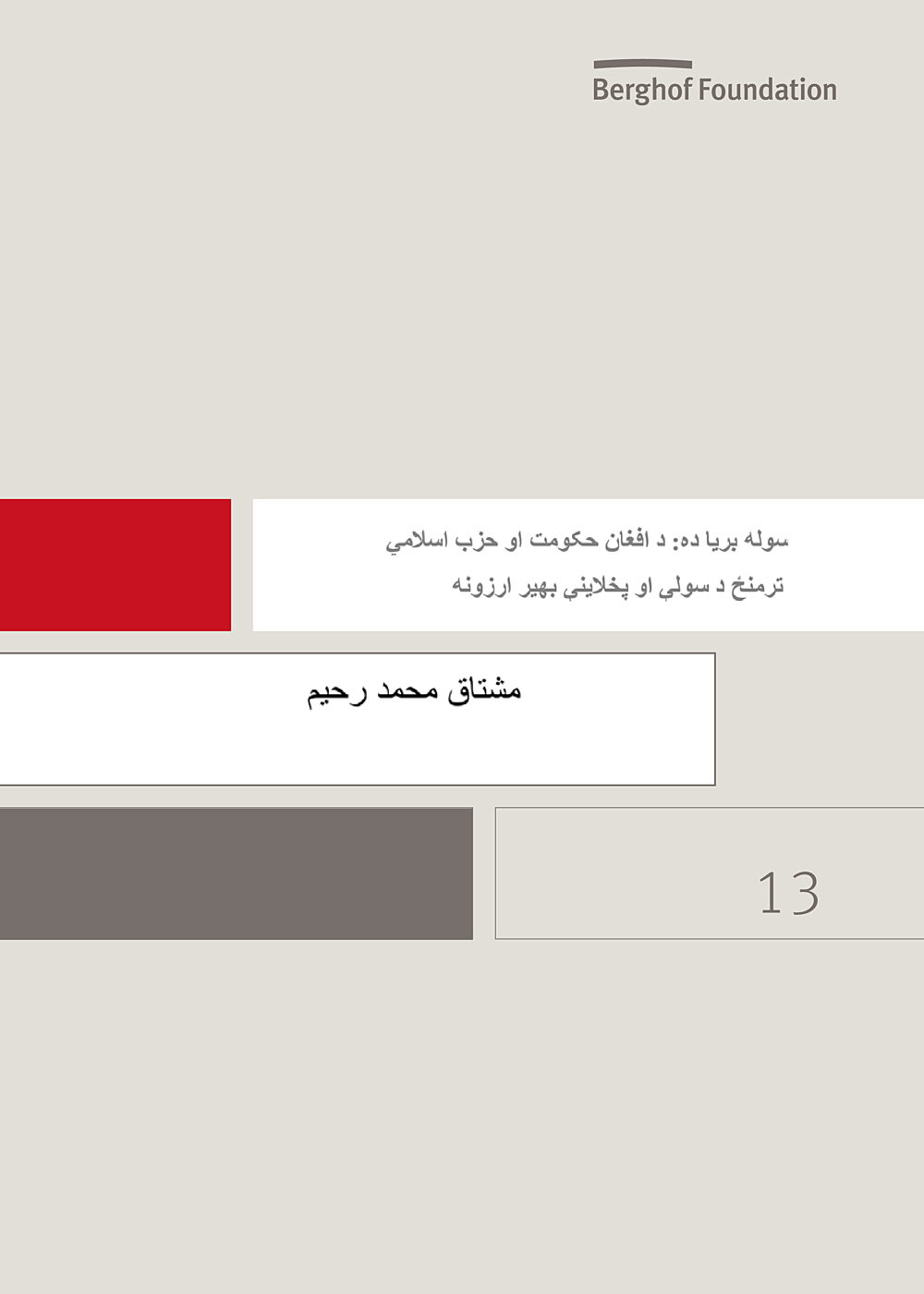
سوله بریا دهد افغان حکومت او حزب اسال مي تر منځ د سولې هوکړه لیک
په دې راپور کې د افغان حکومت او حزب اسالمي ترمنځ د سولې او پخالینې د هڅو شننه او څیړنه تررسه شوې ده. د سولې هوکړې ته د رسیدو لپاره یې اغیزمن الملونه او محدودیتونه مشخص کړي، هوکړې، د هوکړو پيل کول او السته راغلې تجربې یې چې په راتلونکې کې ورڅخه د سولې د مذاکراتو په برخه کې ګټه اخیستل کیدای يش، ارزويل او څیړيل دي. حزب اسالمي د یو ګوند په توګه په ۱۹۷۰ کال کې د اسالمي حکومت د رامنځته کولو په موخه جوړ شو. حزب اسالمي د یوې مهمې جهادي ډلې په توګه د افغانستان د شخړې په ټولو پړاوونو- لکه په ۱۹۸۰ کلونو کې د شوروي اتحاد د تیري کوونکو پوځونو او د هغوی له مالتړ څخه برخمن رژیم په وړاندې مبارزه، په ۱۹۹۰ کلونو کې د کورنیو جګړو، د طالبانو رسه د سیمو د کنټرول پهبرخه کې مستقیمه جګړه او په ۲۰۰۱ کال کې د طالبانو د رژیم له راپرځیدو وروسته د افغان حکومت او نړیوالو پوځونو مالتړیو په وړاندې جګړه کې- ونډه درلودلې ده.
- Year2019
- Author(s)Mushtaq Muhammad Rahim
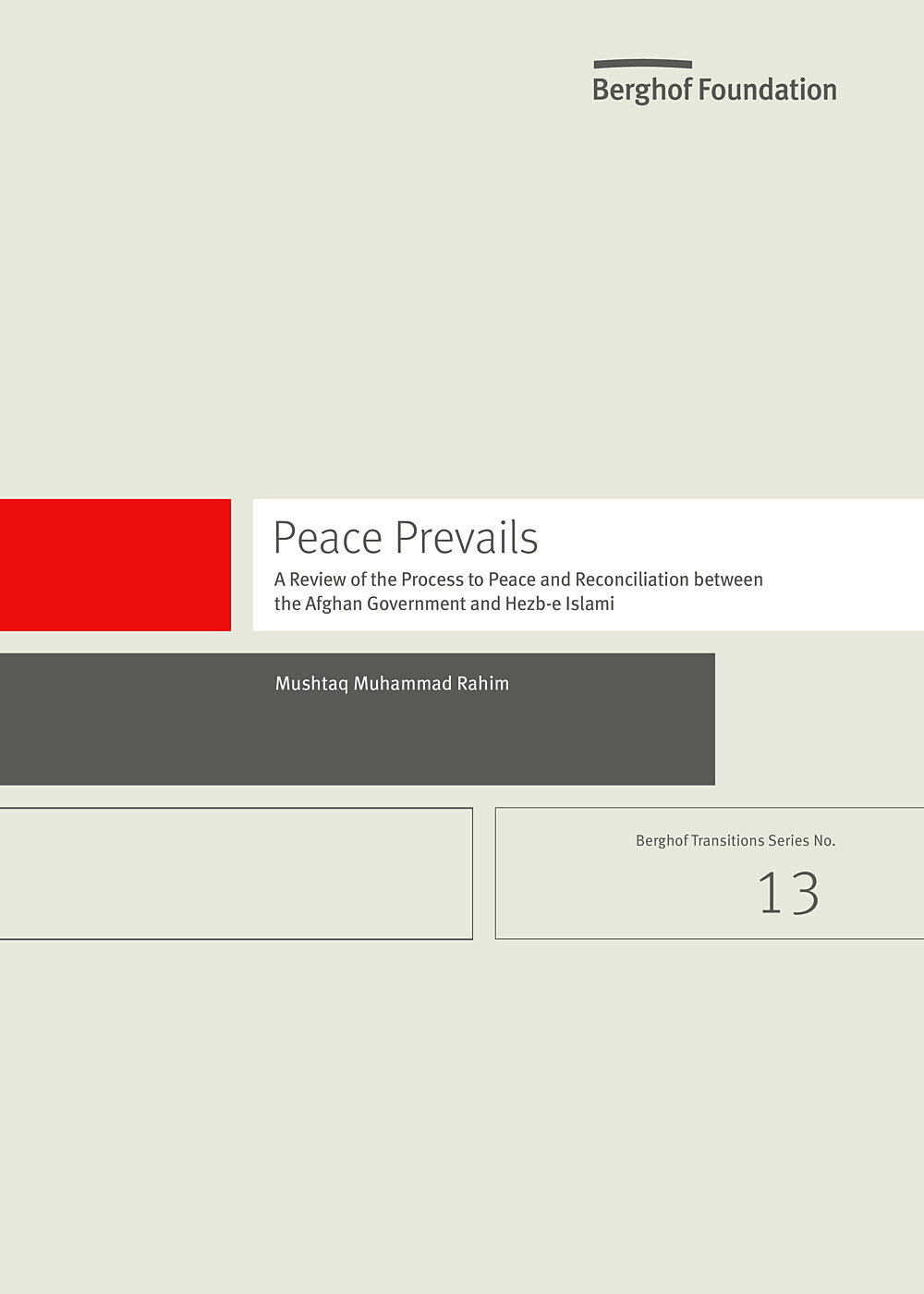
Peace Prevails: A Review of the Process to Peace and Reconciliation between the Afghan Government and Hezb-e IslamiTransitions Series No. 13
This study analyses the peace and reconciliation efforts of the Afghan government and the armed opposition group, Hezb-e Islami. It identifies enabling factors and limitations of the peace process, the resulting agreement and its implementation, as well as lessons learnt that can be used in future peace negotiations in Afghanistan. Hezb-e Islami was founded to establish Islamic governance in Afghanistan during the 1970s. It has been one of the main resistance groups throughout the various phases of armed conflict – fighting invading Soviet forces and the Soviet-backed regime throughout the 1980s and the civil war in the 1990s, battling the Taliban for territorial control and then, after the Taliban was ousted in 2001, combatting the Afghan government and its international backers.
- Year2019
- Author(s)Mushtaq Muhammad Rahim
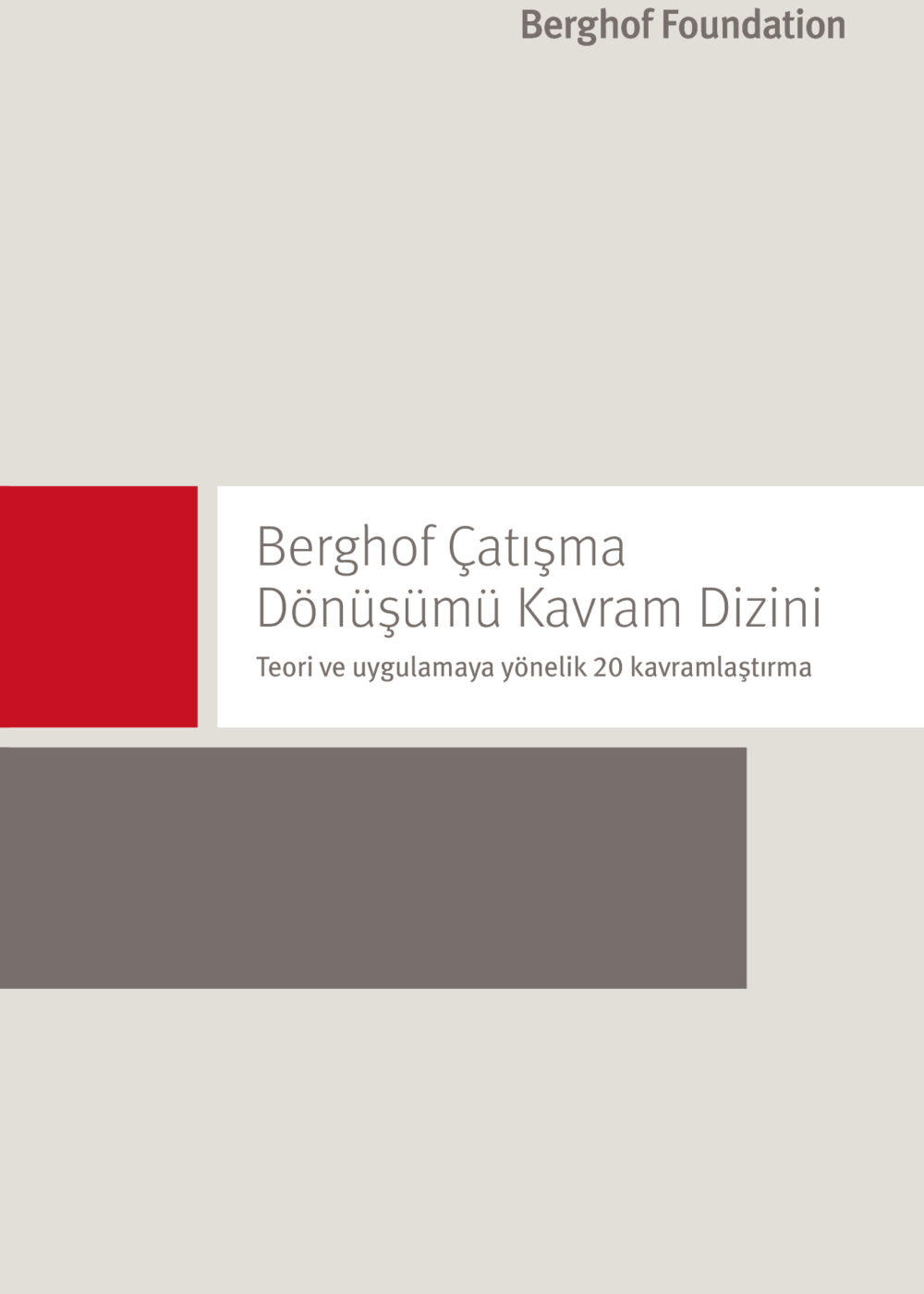
Berghof Çatışma Dönüşümü Kavram DiziniTeori ve uygulamaya yönelik 20 kavramlaştırma
Bu kavram dizini, Berghof Vakfı’nın çalışmalarında kullanılan çatışma dönüşümüne ilişkin 20 temel terimi tanımlamakta ve tartışmaktadır. Peki neden yeni bir kavram dizini ve özellikle de çatışmanın dönüştürülmesi alanında bir kavram dizini?
Öncelikle, “çatışma dönüşümü” kavramı, çatışma ve barış inşasına dair küresel söylemin hala nispeten yeni ve ayrı ve bir ayağıdır. Çatışma dönüşümü, çatışmaların varlığını toplumsal değişim ve gelişmenin kıymetli ve hatta vazgeçilmez bir parçası olarak görür, fakat şiddeti çatışan taraflar arasındaki ilişki ve etkileşimlerin kaçınılmaz bir parçası olarak algılamaz. Bu yüzden çatışmaların “çözümünü” uğraşının en önemli ve nihai amacı olarak görmez. Daha ziyade, çatışan özneler arasında yapıcı ilişiler kurmayı ve kalıcı barış için gereken mekanizmaların oluşturulmasına yardımcı olmayı amaçlar. Bunu, sürdürülebilir şiddet-içermeyen stratejileri üstün kılabilecek şekilde, çatışmaların temel nedenlerine nüfuz ederek yapar.
- Year2018
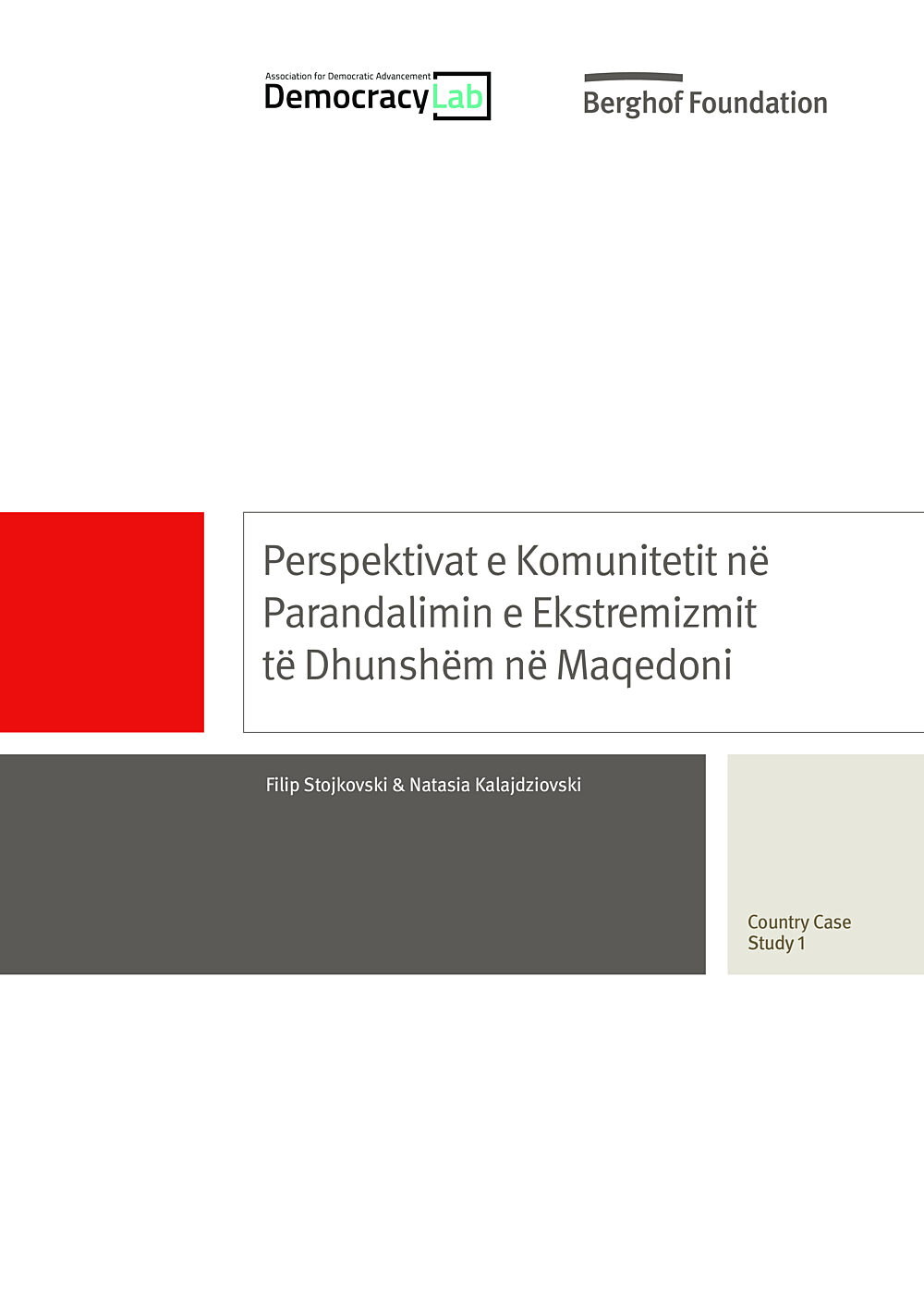
Perspektivat e Komunitetit në Parandalimin e Ekstremizmit të Dhunshëm në Maqedoni
Gjithnjë e më shumë, strategjitë qeveritare për parandalimin dhe luftimin e ekstremizmit të dhunshëm P/CVE konsiderohen si një plotësim i domosdoshëm për strategjitë më të gjera kundër terrorizmit. Një përfshirje e tillë është një njohje se një qasje e pastër e “sekuritizimit” nuk është tërësisht efektive dhe se një strategji që përfshin një “qasje të butë” për të luftuar terrorizmin duhet të kërkojë të adresojë edhe faktorët socialë. Megjithatë, brenda rajonit të Ballkanit Perëndimor – dhe veçanërisht në kontekstin e Maqedonisë – strategjitë për të luftuar terrorizmin kanë qenë të ngadalta në miratimin e qasjeve të Parandalimit/Kundërvënies ndaj ekstremizmit të dhunshëm (më tej në tekst P/CVE).
- Year2018
- Author(s)Filip Stojkovski, Natasia Kalajdziovski
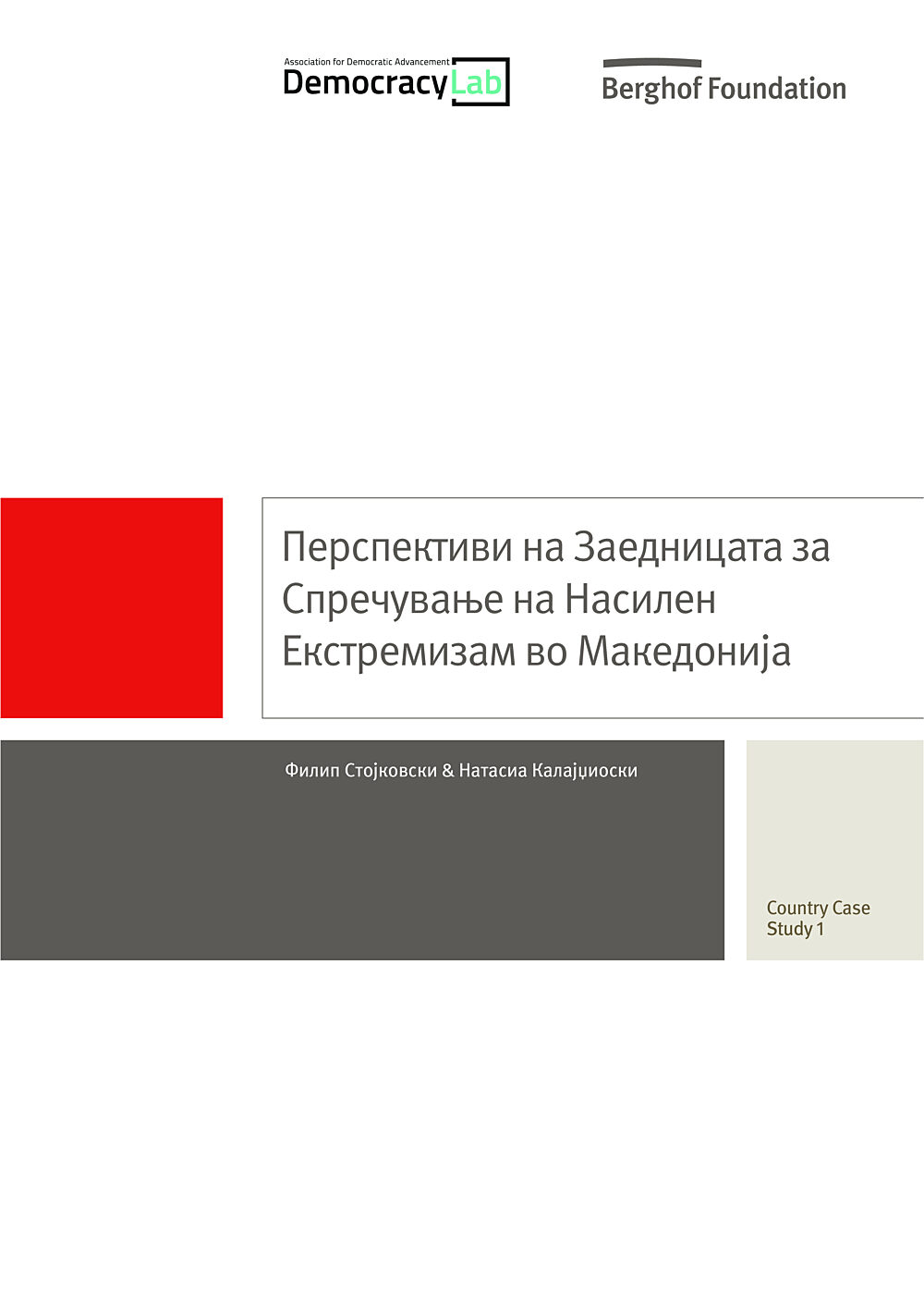
Перспективи на Заедницата за Спречување на Насилен Екстремизам во Македонија
Сè повеќе, владините стратегии за спречување и борба против насилниот екстремизам (P/CVE) се сметаат за неопходно дополнување на пошироките стратегии за борба против тероризмот. Ваквото вклучување е потврда дека еден чист “безбедносен” пристап не е целосно ефективен, и дека една стратегијата која вклучува “мек пристап” за борба против тероризмот мора да бара и решавање на социјалните фактори. Меѓутоа, во регионот на Западен Балкан – а особено во македонскиот контекст, стратегиите за спречување на тероризмот се бавни во усвојувањето на пристапите од P/CVE.
- Year2018
- Author(s)Filip Stojkovski, Natasia Kalajdziovski
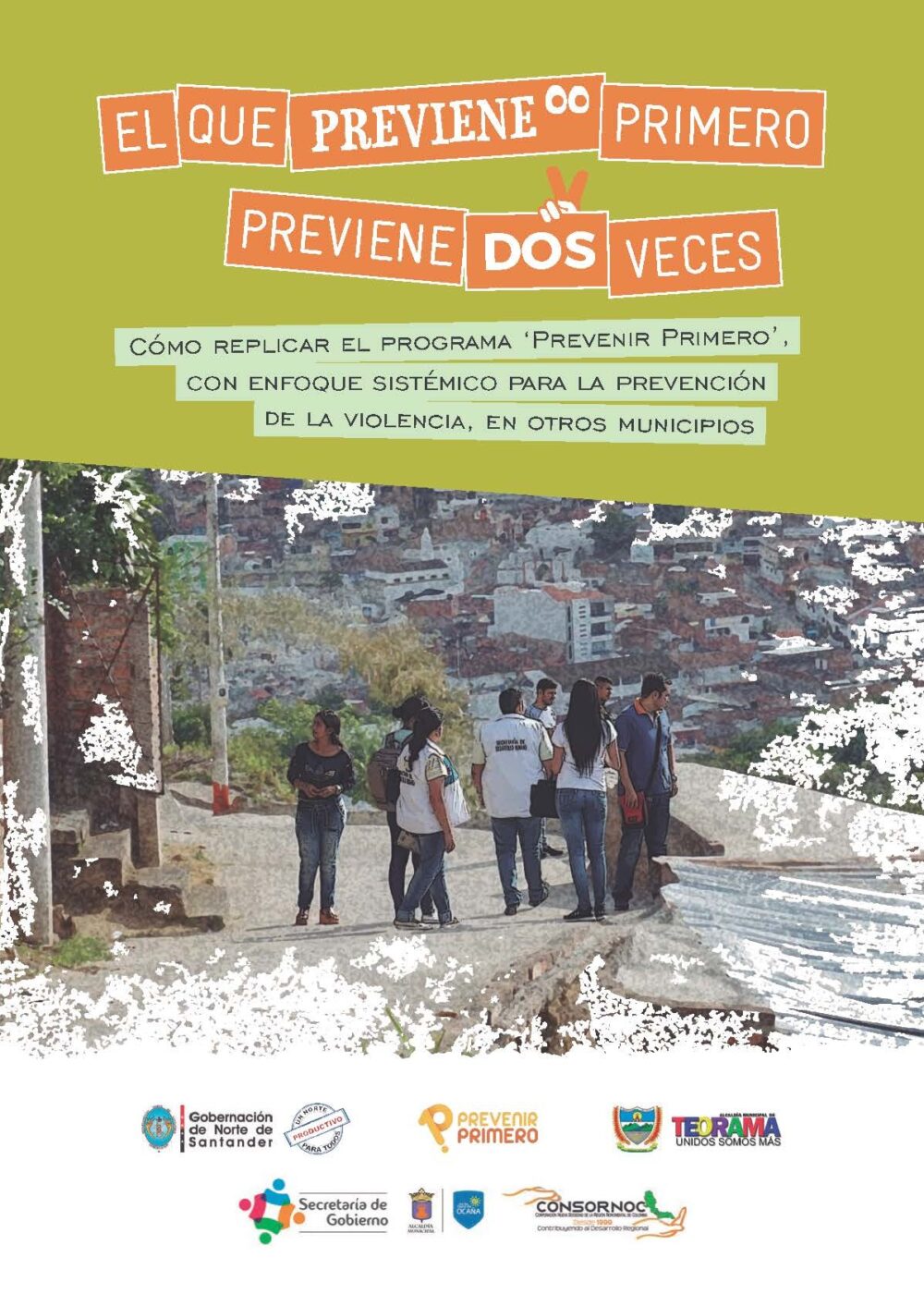
El que previene primero, previene dos vecesCómo replicar el programa ‘Prevenir Primero’, con enfoque sistémico para la prevención de la violencia, en otros municipios
El piloto introdujo conceptos, metodologías y herramientas del Enfoque Sistémico de Prevención de la Violencia, ESPV2, desarrollado por la GIZ3, y mostró la eficiencia de la cooperación multisectorial y multinivel en la prevención de la violencia, al desarrollar capacidades en personas e instituciones para gestionar intervenciones integrales y conseguir mejorar la percepción de seguridad en el caso particular de los barrios de Ocaña y Teorama en donde se trabajó. Los resultados positivos del piloto del programa ‘Prevenir Primero’ lo posicionan para su transferencia a nivel departamental.
- Year2018
- Author(s)Jorge Rodríguez Villasuso
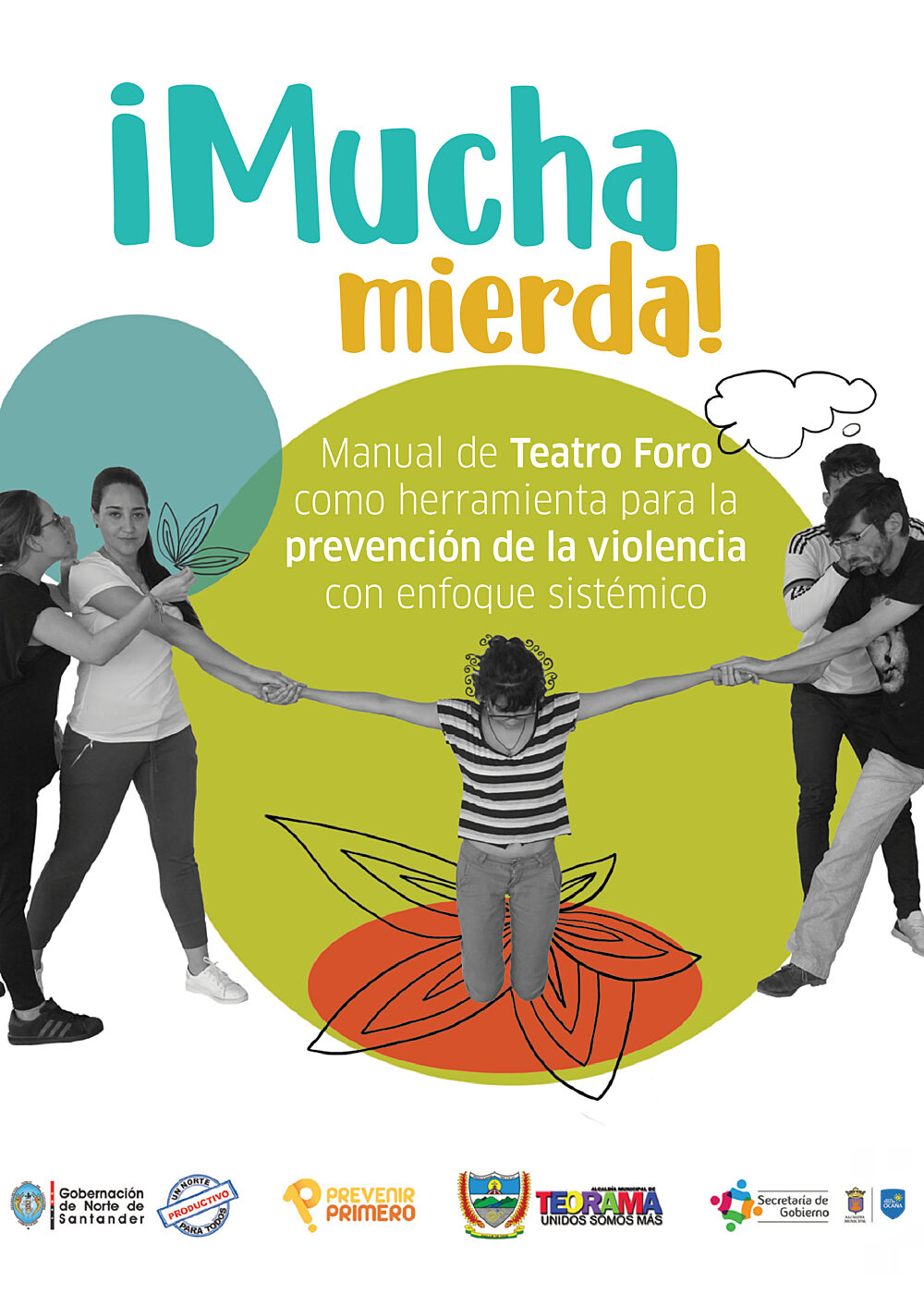
¡Mucha mierda!Manual de Teatro Foro como herramienta para la prevención de la violencia con enfoque sistémico
Este Manual sirve como ‘vademécum’ para las personas y organizaciones que hicieron parte del proceso piloto de ‘formación de formadores’ en Teatro Foro (TF) como herramienta para la prevención de la violencia con enfoque sistémico, en Norte de Santander. Compendia las metodologías y facilita su aplicación ordenada.
Es útil para cualquier persona interesada en TF, al dar un acercamiento comprensivo a los principales conceptos y técnicas de esta variación del teatro convencional, que consiste en invitar a entrar en escena a integrantes del público en un punto en el que la historia plantea un conflicto, para que actúen su propia manera de tramitarlo y así cada quien pase de ser espectador o espectadora pasivo/a, a convertirse en ‘espectactor’ o ‘espectactriz’ activo/a; que hace un aporte transformador y propicia el foro y el debate constructivo.
- Year2018
- Author(s)José Miguel Abad, Luis M. Benítez Páez
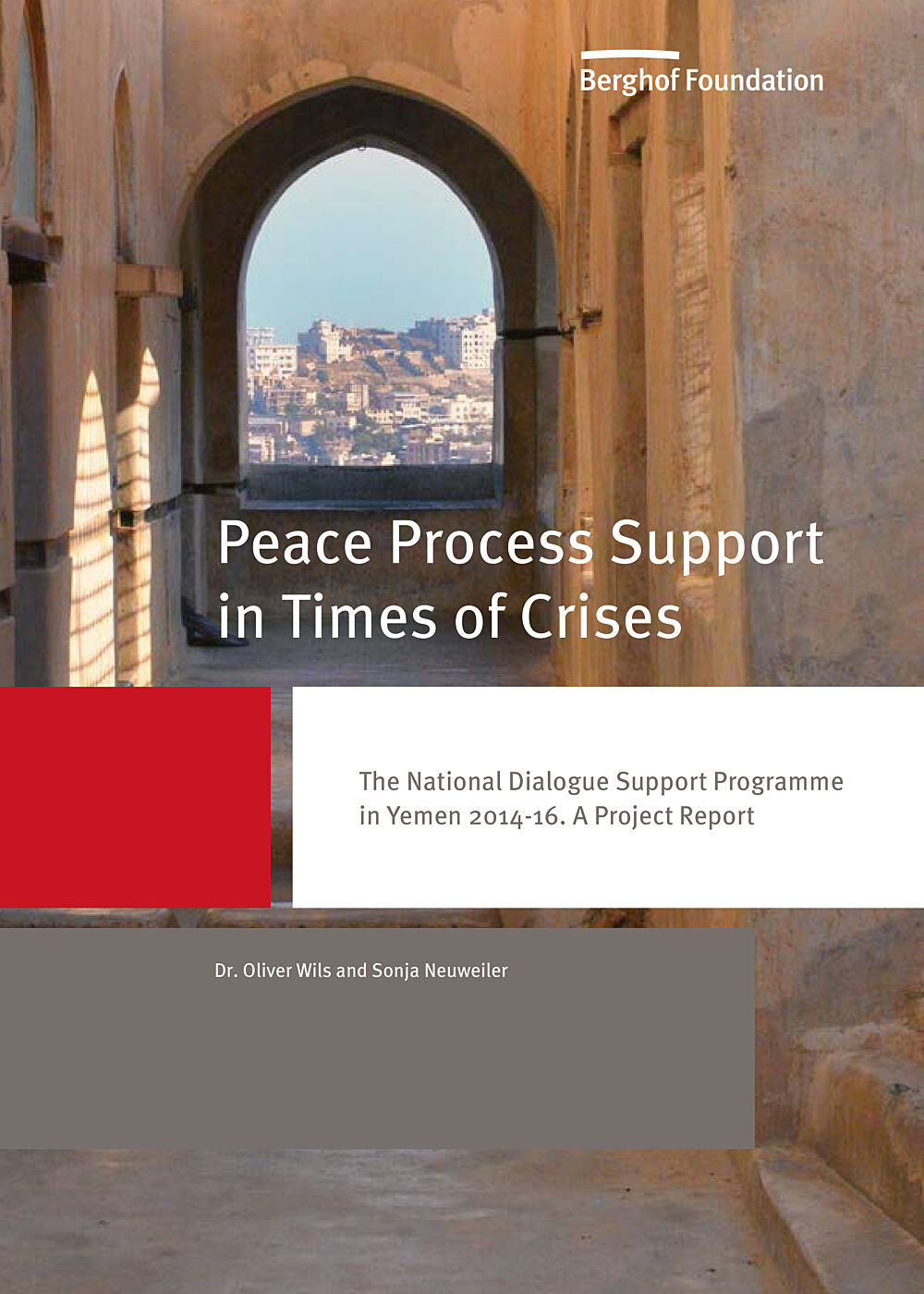
Peace Process Support in Times of CrisesThe National Dialogue Support Programme in Yemen 2014-16
- Year2018
- Author(s)Oliver Wils, Sonja Neuweiler
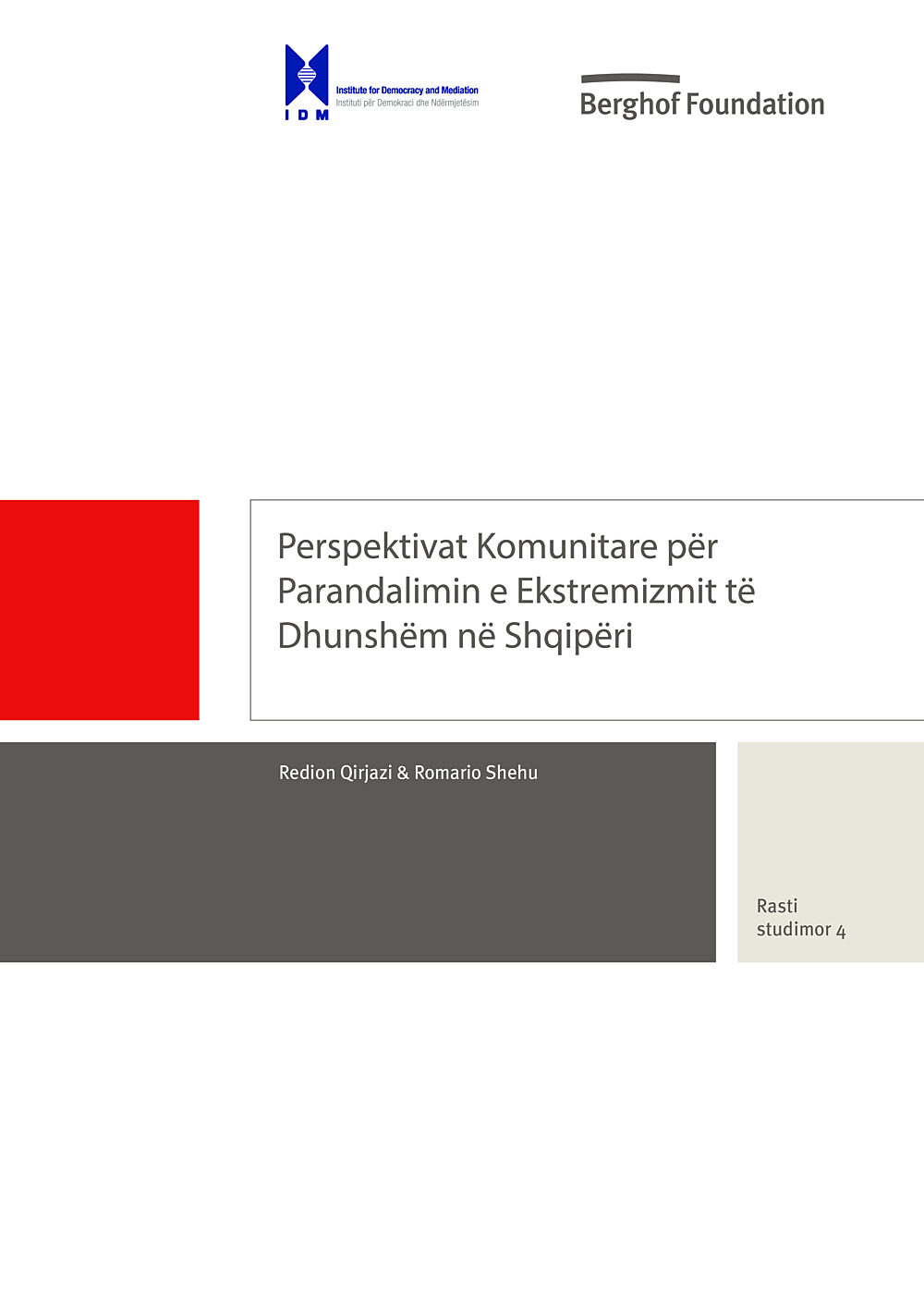
Perspektivat Komunitare për Parandalimin e Ekstremizmit të Dhunshëm në Shqipëri
Rasti studimor i Shqipërisë është kryer së bashku me tre studimet e tjera të cilat mbulojnë Bosnjë dhe Hercegovinën, Kosovën dhe Maqedoninë, në kuadër të projektit studimor “Mundësitë për Parandalimin e Ekstremizmit të Dhunshëm në Ballkanin Perëndimor”. Së bashku me katër partnerët vendorë të hulumtimit, ne shqyrtojmë pse disa komunitete janë veçanërisht të prekur nga individë të frymëzuar nga dhe/ose që bashkohen me Shtetin Islamik (ISIS) ose grupe të të ngjashme të ekstremizmit të dhunshëm, ndërkohë që komunitete të tjera mund të tregojnë qëndrueshmëri më të madhe ndaj të njëjtit fenomen. Bazuar në gjetjet e hulumtimit, partnerët e projektit do të zhvillojnë fushata informimi dhe nisma të dialogut lokal, në bashkëpunim me aktorët lokalë dhe komunitetet e prekura, me qëllim që të shqyrtojnë dhe zhvillojnë strategji për parandalimin e radikalizmit të dhunshëm në Ballkanin Perëndimor.
- Year2018
- Author(s)Redion Qirjazi, Romario Shehu
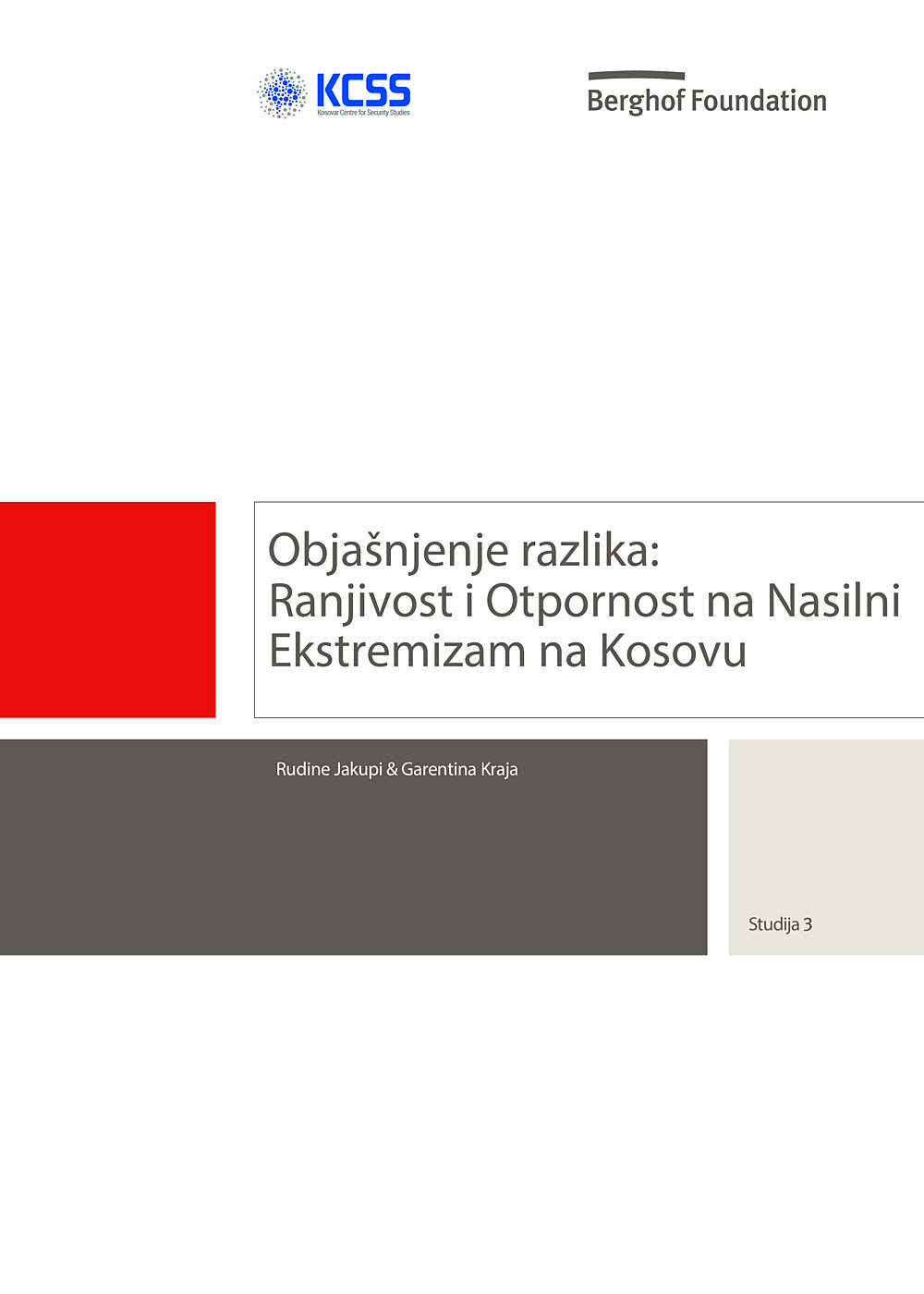
Objašnjenje razlikaRanjivost i Otpornost na Nasilni Ekstremizam na Kosovu
Ova studija o državi Kosovo je izrađena, pored tri ostalih koji pokrivaju Albaniju, Bosnu i Hercegovinu i Makedoniju, u okviru projekta participativnog izveštaja za “Mogućnosti za Sprečavanje Nasilnog Ekstremizma na Zapadnom Balkanu”. Zajedno sa četiri lokalna partnera istraživanja, istražili smo zašto su neke zajednice posebno pod uticajem pojedinaca inspirisanih od i/ili su se udružili Islamskoj Državi (ID) ili ostalim slićnim nasilnim ekstremnim grupama, dok ostale zajednice pokazuju veću otpornost na iste pojave. Na osnovu nalaza istraživanja, partneri projekta će sprovesti političko usmeravanje i iniciative lokalnog dialoga, u saradnji sa lokalnim sudionicima i zajednicama pod uticajem, da bi istražili i razvili strategije za sprečavanje nasilnog radikalizma na Zapadnom Balkanu.
- Year2018
- Author(s)Rudine Jakupi, Garentina Kraja